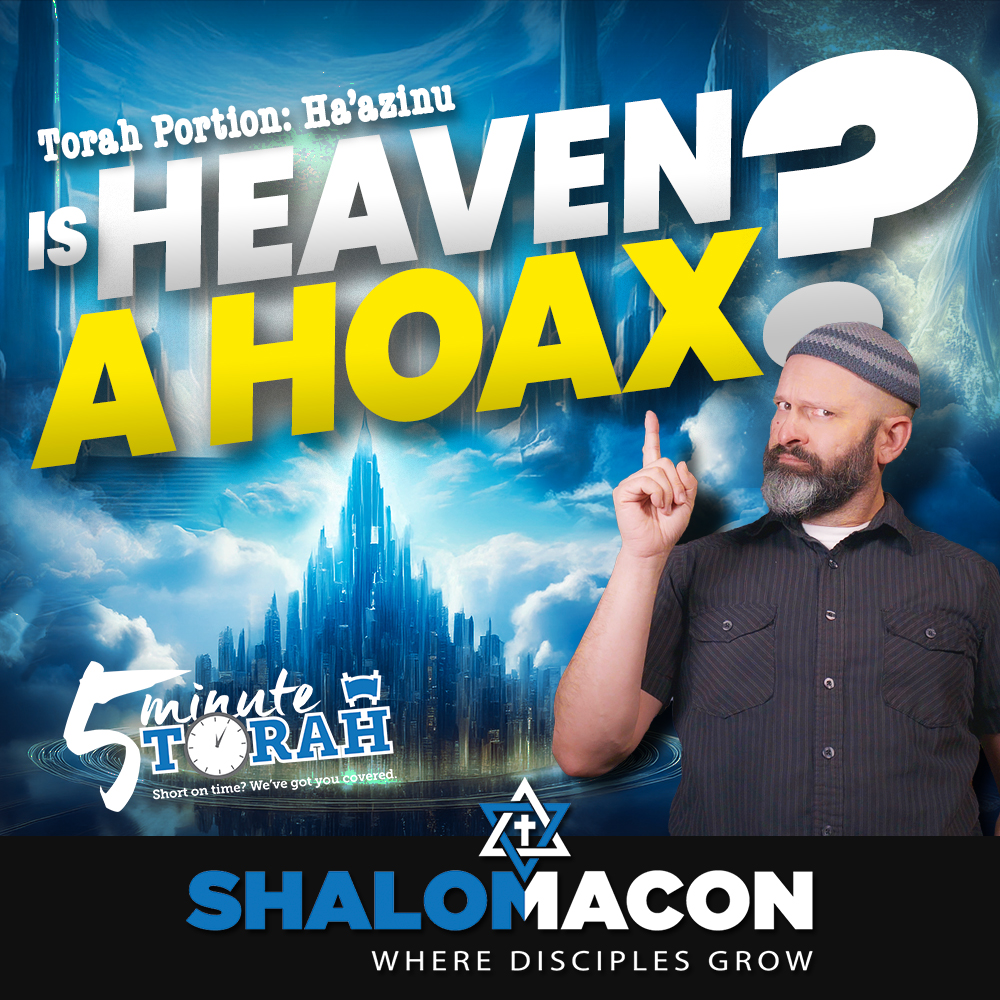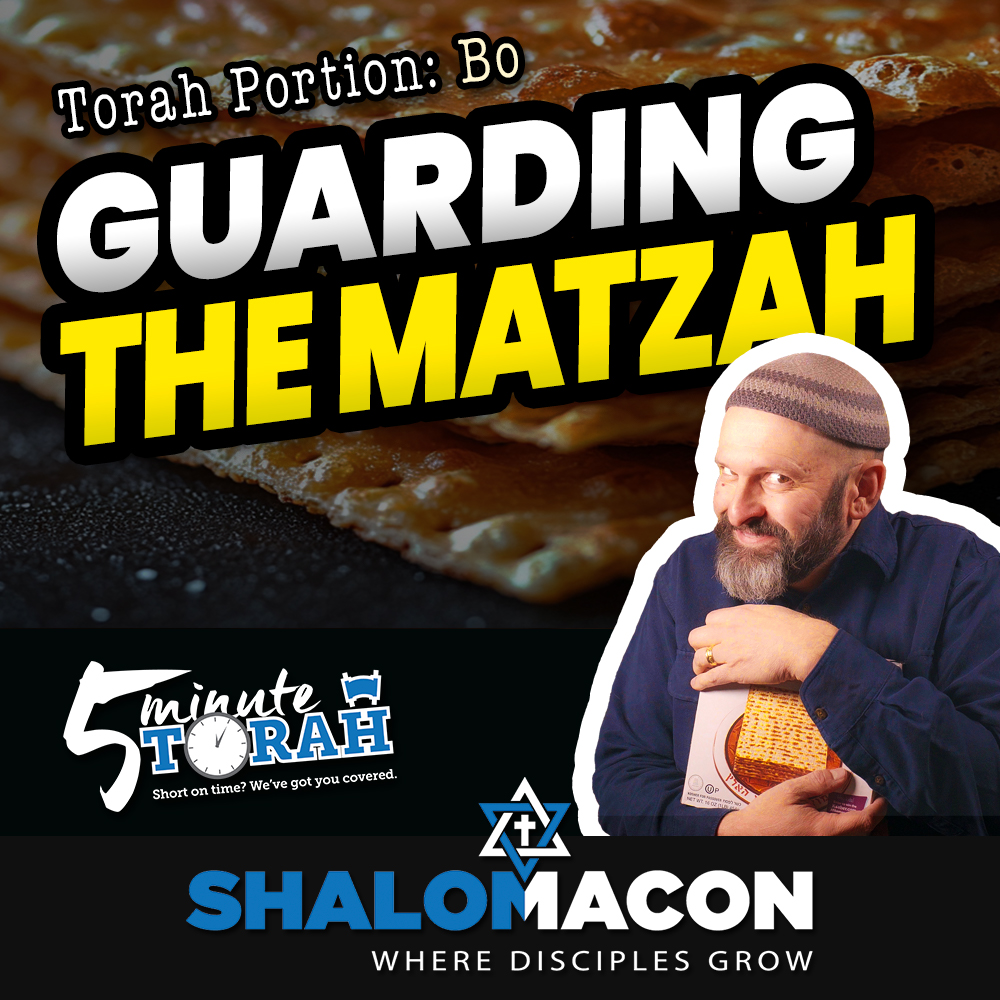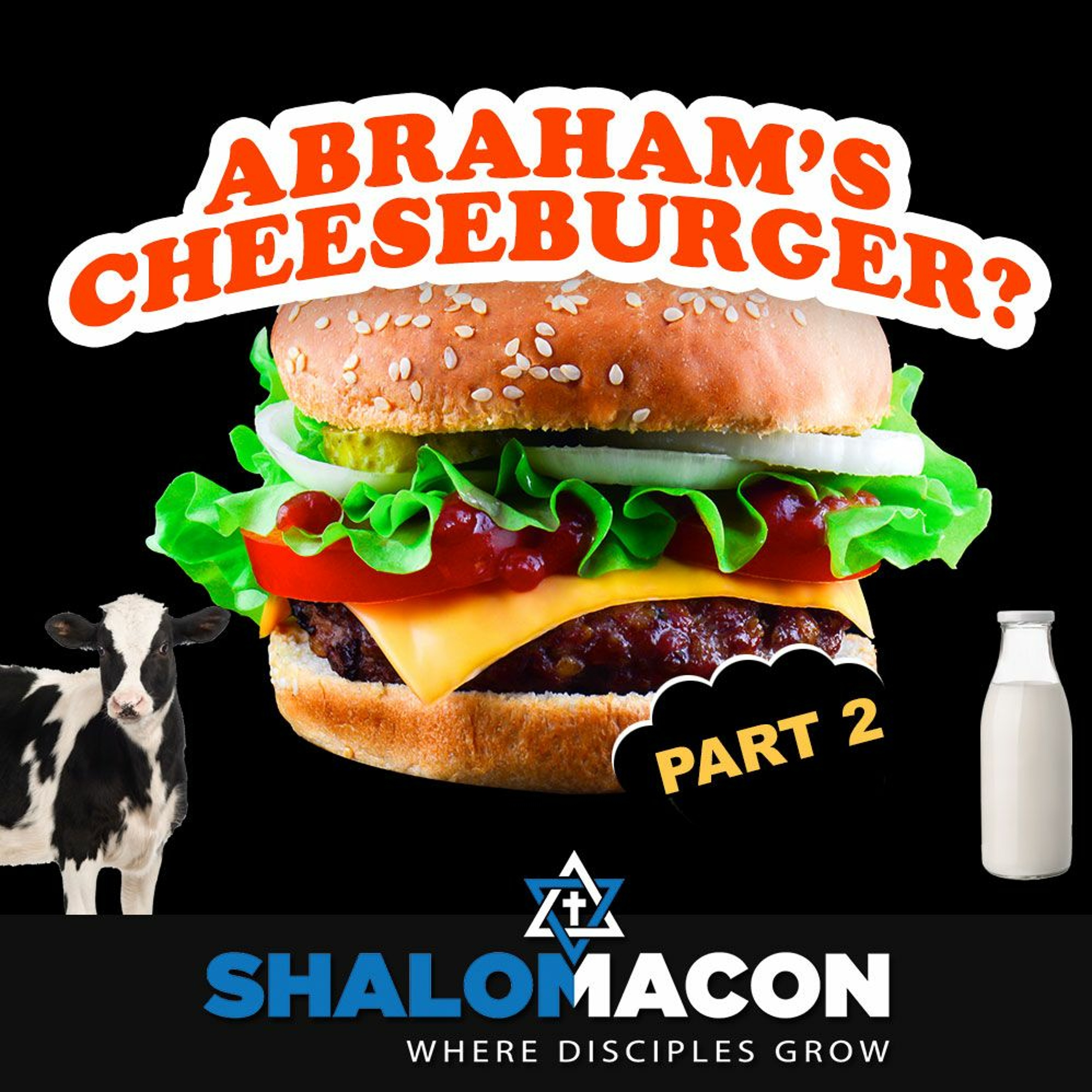[00:00:00] Speaker A: Heaven, the city of God, glory land, the celestial city, the land beyond where we'll all fly away, where there will be no more tears, no more sorrow, no more pain, the eternal reward of those in Christ and the resting place of the saints? Or is it is our hope to one day walk the streets of gold in this place called heaven? Is this the eternal destination of the righteous? Or have we had the wool pulled over our eyes and exchanged our eternal hope for for a counterfeit? If I've got your attention and you want to know more, then stick around for this week's five minute tour.
Shalom and welcome back. I'm Darren and I'm excited to be with you again for another video on the weekly tour portion. Before I get into the five minute tour commentary, let's take a quick peek into our tour portion. First, this week's tour portion is the next to last portion in the entire tour cycle. Second, the final tour portion, the Zot Habracha, isn't listed in the weekly tour readings because it's always read on the festival of Simchat Torah, which usually falls during the week. On Simchat Torah, we read the last portion of the Torah and then roll it all the way back to the beginning to start the Torah all over again with the book of Genesis. This week we're studying the portion of Haazinu Deuteronomy 32 one through 52, and here are the three things that you need to know about it. Number one, Sharat Haazinu, the song of Moses. All but a few of the 52 verses of this week's Torah portion comprise what is called Shirat Hazinu. The song of Moses is a song that the Lord instructs Moses to teach the children of Israel before they enter the promised land. Like the Torah itself, this song is given as a continual reminder for the children of Israel to follow the Lord's instructions and keep the covenant they made with him at Mount Sinai so that they don't suffer the consequences of infidelity. It's sung to this day. Number two, Israel as Yeshalun, the ideal nation Israel is called Yeshurun for the first time in the Torah. Yeshurun, or Jeshurun in most english translations, means upright, an idiom which means righteous. This word is only used four times in the entire Hebrew Bible, three of which are found in the last two portions of deuteronomy. In our current Torah portion, its used to describe Israels spiritual state before falling away from the Lord in verses 15 through 18, its a term thats used to describe Israel in their ideal state, free of the trappings of sin. And number three, the death of Moses. The kiss of God. At the very end of our Torah portion, God tells Moses to climb Mount de Mo in order to view the promised land before he's gathered to his people. Like his brother Aaron, he's reminded once again that he won't be able to enter the land because you broke faith with me in the midst of the people of Israel, at the waters of Merabba Kadesh, in the wilderness of Zin, and because you did not treat me as holy in the midst of the people. Verse 51 so Moses, the servant of the Lord, died there in the land of Moab, according to the word of the Lord. This is deuteronomy 34 five. In next week's Torah portion, this last phrase, according to the word of the Lord in Hebrew is al PI adonai, which literally means by the mouth of the Lord. From this it is said that Moses left this world with the kiss of God upon his lips. If you're looking for a place to learn, connect and grow, then Shalom Macon is the place. It doesn't matter where you are in the world. You can find a with Shalom Macon through our live services every Saturday and through our private social network we call Shalom at home. Check us out on YouTube and on our
[email protected], for more information. We look forward to connecting with you and seeing you this Shabbat this week's Torah commentary is called the Torah and the resurrection. It comes from my book, five minute Torah, volume two. In the days of our master Yeshua, the Pharisees and the sadducees debated the certainty of the resurrection. The Pharisees believed in the resurrection of the dead, whereas the Sadducees rejected this concept. The reason for the debate was that the Torah does not explicitly mention any kind of resurrection. However, passages within the Torah seem to point to a resurrection. A few of these passages are found within the last two Torah portions. Last week we read, and the Lord said to Moses, behold, you are about to lie down with your fathers. Then this people will rise and whore after the foreign gods among them in the land that they are entering, and they will forsake me and break my covenant that I have made with them. This is Deuteronomy 30 116. The allusion in this passage is not obvious in our english translations. However, it is more pronounced in the Hebrew. In the English we read, you are about to lie down with your fathers. Then this people will rise. These are two separate thoughts. One regarding the death of Moses and the other about what the children of Israel will do after his death. In Hebrew, however, we can read the first part of this as a single thought, shochev im avotejeh v'kamde, you will lie down with your fathers and arise. This alternate reading is put forth by ibn Ezra and others. It is supported by the fact that the hebrew word for the phrase an rise, which is vakam is in the singular and can refer back to Moses. This reading doesnt supersede the literal reading of the passage, but its an additional insight we can derive from it. Another passage that supports the concept of a resurrection is in this weeks reading. Toward the end of the song of Moses we read see now that I, even I, am he and there is no God beside me. I kill and I make alive, I wound and I heal, and there is none that can deliver out of my hand. This is Deuteronomy 32 39. Several of our sages see an allusion to the resurrection in this passage because of the wording. Although the phrase I kill and I make alive seems to refer to various individuals who are destined to die or live, in context this phrase is connected to I wound and I heal. In the Talmud, Rabad uses this passage to show that just as the wounding and the healing are actions describing a single individual, the actions of killing and making alive are as well. This comes from Pezachim 68. Ibn Ezra supports this reading from a passage from the prophets which says, the Lord kills and brings to life, he brings down to Sheol and raises up this is one Samuel two six. But whether the concept of the resurrection is explicitly embedded in the Torah or not, the debate between the Pharisees and the Sadducees was settled once and for all when Yeshua rose from his grave on the third day. This concept was an extremely important and pivotal belief among the early believers. Paul claims three different times that he is being brought to trial because of his belief in the resurrection. He also tells the disciples at Corinth that the resurrection is the foundation of our hope. Now, if Christ is proclaimed as raised from the dead, how can some of you say that there is no resurrection of the dead? But if there's no resurrection of the dead, then not even Christ has been raised. And if Christ has not been raised, then our preaching is in vain and your faith is in vain. If in Christ we have hope in this life only we are of all people most to be pitied. But in fact, Christ has been raised from the dead, the firstfruits of those who have fallen asleep. This is one corinthians chapter 15, verses twelve through 14, and then verses 19 through 20. Unfortunately, many followers of Yeshua have traded in their biblical hope of resurrection for the hope of an eternal, non corporeal bliss in heaven because of a misunderstanding of hebrew idioms used within the apostolic scriptures, particularly with the phrase kingdom of heaven, which is simply a reference to the messianic era. But the scriptures never speak about heaven as the eternal resting place of the righteous. They do, however, continually affirm the physical resurrection of the dead, a hope that is unique to biblical faith. This is where we should put our hope. In the book of revelation we read and I heard a loud voice from the throne saying, behold, the dwelling place of God is with man. He will dwell with them, and they will be his people, and God himself will be with them as their God. He will wipe away every tear from their eyes and death shall be no more. Neither shall there be mourning, nor crying nor pain anymore, for the former things have passed away. And he who was seated on the throne said, behold, I am making all things new. This is revelation 21 three five. Now the concept of the physical resurrection was not one that was newly imagined by Paul or the apostles. It was one established in the Torah, revealed by the prophets and sages, demonstrated by Yeshua, and elucidated by the apostles. This is our eternal hope and the future reality. May we never give up on that hope as we await our masters return. Were you taught that heaven is our ultimate destination? Did this video, with its emphasis on the resurrection rather than going to heaven, affect your perspective on the afterlife? I would love to hear your thoughts and im sure others would as well. Let me hear your story in the comments below. Ill see you next week for another messianic insight into the eternal Torah of God. Blessings from Shalom Akin, the place where disciples of Yeshua learn, connect, and grow.
[00:09:03] Speaker B: Please visit our website shalomacon.org to learn more about us. Join our live services access other teachings, sign up for our newsletter, join our private network that will connect you with our greater community from around the world, or contribute to the work of Shalom Macon. Thank you for watching and we look forward to connecting with.



